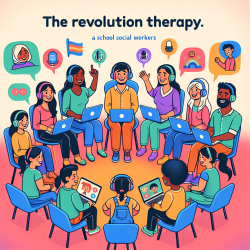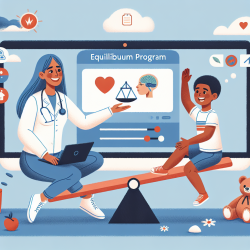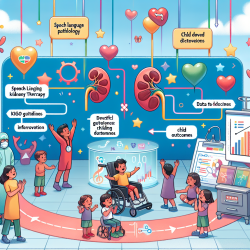Empower Your Child's Future: Transform IEP Meetings into Opportunities
As parents of children with special needs, you often find yourselves navigating the complex world of Individualized Education Programs (IEPs). These meetings can be daunting, especially when you're feeling burnt out. However, with the right approach and mindset, IEP meetings can be transformed into powerful opportunities for your child's growth and development.
Understanding the IEP Process
IEP meetings are designed to create a tailored educational plan that meets your child's unique needs. They involve collaboration between you, educators, and specialists to ensure your child receives the appropriate support. It's crucial to understand the process and your role within it.
Preparation is Key
Preparation is your most powerful tool in an IEP meeting. Here are some steps to help you prepare:
- Review Current IEP: Understand your child's current goals and progress. Note any areas where you feel more support is needed.
- Gather Data: Collect data from teachers, therapists, and any other professionals involved in your child's education. This might include speech therapy evaluations or mental health assessments.
- Set Clear Goals: Think about what you want to achieve from the meeting. Setting clear, realistic goals will guide the discussion and ensure your child's needs are addressed.
Active Participation
During the meeting, your active participation is crucial. Here are some tips to help you engage effectively:
- Ask Questions: Don't hesitate to ask for clarification if something is unclear. Understanding every aspect of the plan is vital.
- Express Concerns: Share any concerns you have about your child's progress or the proposed plan. Your insights are valuable.
- Collaborate: Work collaboratively with the team to find solutions. Remember, everyone is there to support your child's success.
Taking the Next Step
After the meeting, it's important to follow through with the agreed-upon plan. Here are some actions you can take:
- Monitor Progress: Keep track of your child's progress and communicate regularly with their teachers and therapists.
- Adjust as Needed: Be open to adjusting the plan if necessary. Flexibility is key to meeting your child's evolving needs.
- Seek Support: If you feel overwhelmed, consider seeking support from online therapy services like TinyEYE. Professional guidance can make a significant difference.
Conclusion
IEP meetings don't have to be a source of stress. By preparing thoroughly, participating actively, and following up diligently, you can turn these meetings into meaningful opportunities for your child's development. Remember, you are not alone in this journey. With the right support and mindset, you can create a positive and empowering educational experience for your child.










